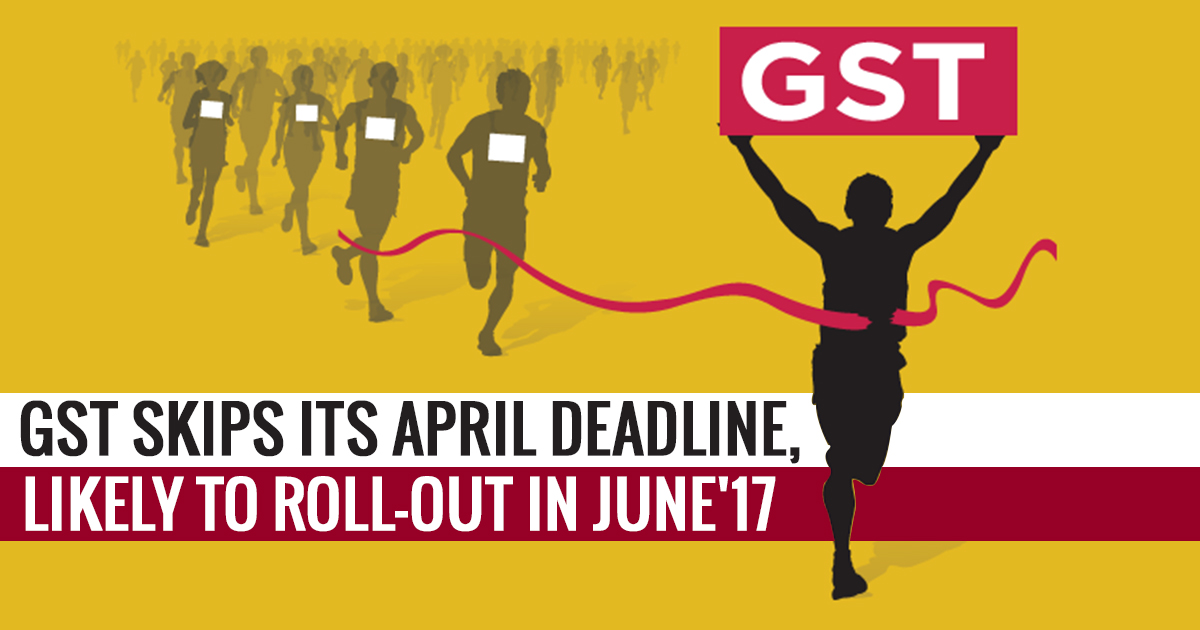The goods and service tax are a major reform considered in the economy while many aspects are laying off its delay but the fact is known by almost all the higher body that the implementation of GST is likely to be held for some more period of time as to take control over various conditions prevailing in the market.
The delay is expected to be extended for around two or maybe three months which will certainly give some extra amount of time to the apex bodies for this significant reform. The administration is yet to settle on a date, which is probably going to be either 1 June or 1 July, the general population said on state of secrecy.
While the new dates would defer the rollout, they are additionally well inside the required due date of September—after which the central and state governments will lose forces to collect any indirect taxes other than GST. Desires are that the GST legislation will be presented in the primary portion of the budget session and the legislature will look to get it go after the break.
Contrasts between the centre and the states, particularly over the sharing of powers, has deferred the last endorsement for supporting legislations for GST, a tax change which will interestingly tie the nation into a typical market.
States like Kerala and West Bengal have looked for a postponement in the usage of the tax, contending that state accounts can’t withstand the double punch of both GST and demonetization. GST will subsume a large group of indirect taxes demanded by the middle and the states, including excise duty, service tax, value-added tax, entry tax, luxury tax, and entertainment tax.
GST is an indirect tax collected for the purpose of the offer and henceforth can be presented toward the start of any month. Despite the fact that its usage would have been less demanding from the earliest starting point of a financial year, it can be executed at whatever time. Arun Jaitley is relied upon to declare the timetable for this driven tax change in his budget discourse on 1 February.
Everyone’s eyes will now be on the significant 3-4 January meeting of the GST committee in New Delhi that will talk about the combative issue of sharing of regulatory powers between the central government and the state governments. The finance service will likewise need to work out its revenue parameters for 2017-18 in light of GST’s usage date.
Read Also: Meaning of SGST, IGST and CGST
While the central GST bill, integrated GST bill and the bill on the pay off states for revenue misfortunes will be tabled in Parliament, the state GST bill must be tabled in state meetings. As such, following quite a while of thought, the committee has endorsed the draft central and state GST legislations and has given its gesture to the bill on the pay off states for revenue misfortunes emerging from a move to GST. An accord is basic for the integrated GST bill that arrangements with the demand of GST on the inter-state development of goods to get the committee’s endorsement.
N.R. Bhanumurthy, a professor at the National Institute of Public Finance and Policy mentioned some important facts and knowledge regarding this overall topic in his own words, “Since April 1 looks difficult, the government has little option but to bring in GST from any month next year. Since it is a transaction tax, it can be brought in at any time. However, the challenge will be to do a revenue forecast in the budget. It will be prone to huge errors.”










